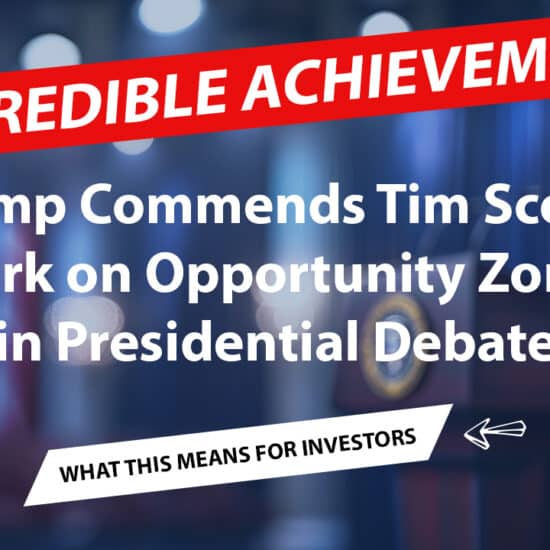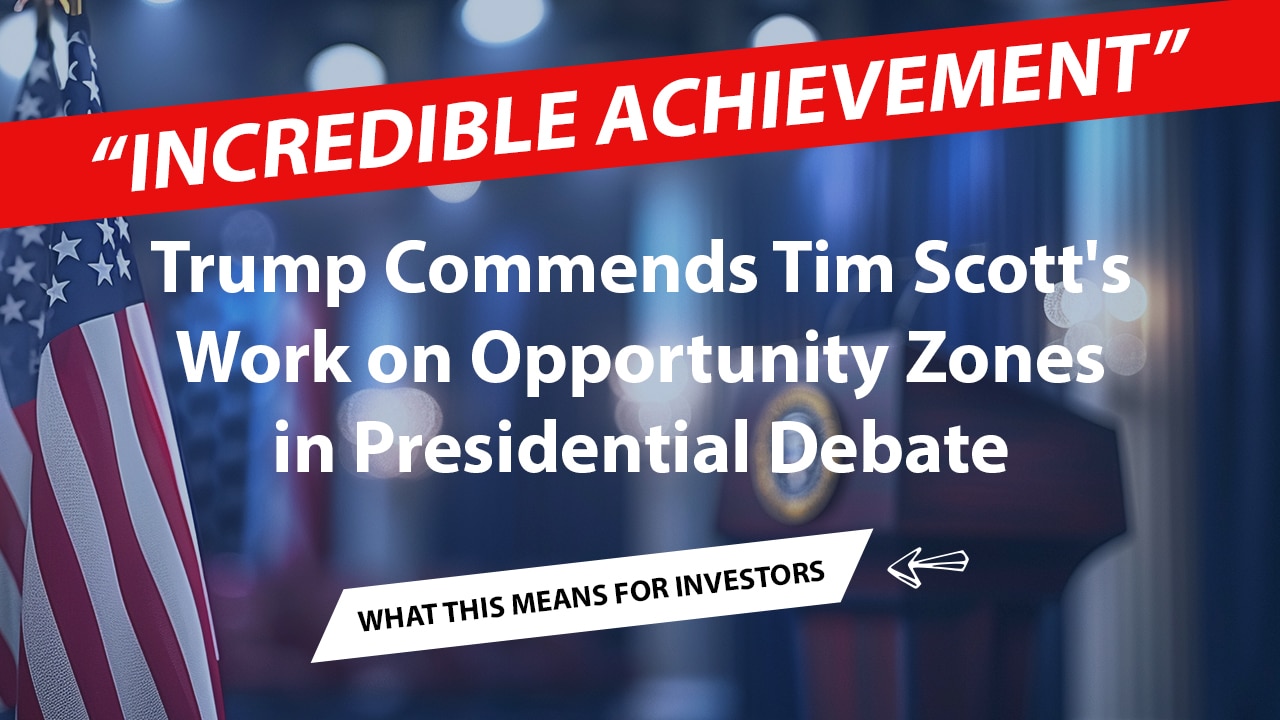
Donald Trump and Tim Scott Praise Opportunity Zones: What It Means for Investors
The 2024 presidential debate between Donald Trump and Joe Biden has stirred significant discussions about their political stances and crucial economic initiatives that could shape the future. One such initiative that gained remarkable attention during the debate is the Opportunity Zones program. A Shout-Out to Opportunity ZonesDuring the debate, former President Donald Trump praised Sen.

How Cryptocurrency Investors Can Eliminate Capital Gains Taxes with Opportunity Zones
As the cryptocurrency market experiences unprecedented growth and volatility, savvy investors seek ways to protect their gains from hefty capital gains taxes. The Opportunity Zone program, a government-backed initiative, offers a unique and powerful solution to defer, reduce, and potentially eliminate capital gains taxes. This blog will explore how the Opportunity Zone program can benefit
Accounting Today: Unlock Opportunities For Tax Incentives In Opportunity Zones
Congress initiated the opportunity zones program in 2017 as part of its Tax Cuts and Jobs Act, a historic law encouraging private investment in low-income neighborhoods across the United States. In a nutshell, it enables you to benefit from capital gains tax benefits and receive returns on investments while making a difference in disadvantaged communities.

MISSION CRITICAL – Must Not Do’s: Top 10 pain points in Qualified Opportunity Zone Funds & Projects
We’ve had more than 1,000 Strategy Calls at OZPros with folks from all around the country. We’ve seen some really great work, and some not so great work. The key differentiator between having a deal go great and having a deal go sideways is your ability to avoid mistakes on the front end. This FAQ

Should I buy the property in my own name if I’m going to convey it to my QOZB later on?
The number one thing not to do with your Qualified Opportunity Zone (QOZB) transaction is: do not under any circumstances buy the property in your own name with the plan to convey it to your QOZB later on. Referencing our handy dandy Opportunity Zone Cheat Sheet, you have to start with a capital gain that

Are you an Operating Qualified Opportunity Zone Business, ensuring you are keeping track of the five asset tests?
If you are an Operating Qualified Opportunity Zone Business, you need to keep track of the five asset tests. Referencing our handy dandy Opportunity Zone Cheat Sheet, you have to start with a capital gain that goes into a Qualified Opportunity Fund within 180 days. Next you need to drop that cash down into a

Are you an existing business or a startup business?
Number three on our list of the Top Ten Things Not To Do is: are you an existing business or a startup business? We’re going back to our handy dandy Opportunity Zone Cheat Sheet. Once again, you have to start with a capital gain. Next you drop the money into your Qualified Opportunity Fund within

Do you have a Working Capital Safe Harbor Business Plan in writing when cash hits your QOZB in order to make your QOZB exempt from the non-qualified financial property test?
Number four on our list is a working capital safe harbor business plan. When creating your Opportunity Zone Fund and Business, referencing our handy dandy opportunity zone cheat sheet, you will take a capital gain and drop it down into your fund within 180 days. You have a six month asset test and you will

Does your Qualified Opportunity Zone Fund meet the 6 Month asset test?
Number five on your Top Ten things not to do with your Qualified Opportunity Zone Fund and/or Business is not preparing for your six month asset test. We are referencing back to our handy dandy qualified Opportunity Zone Cheat Sheet. As you’ll recall, you must start with a capital gain. Your gain needs to go

Do you meet the original use test to be a Qualified Opportunity Zone Business Property?
Number six on our list is original use. Once again, we’re referencing our handy dandy Opportunity Zone Cheat Sheet. You’ll recall you have to start with a capital gain that goes into a Qualified Opportunity Zone Fund within 180 days. Inside of six months to a year, you must have 90% of your assets inside
